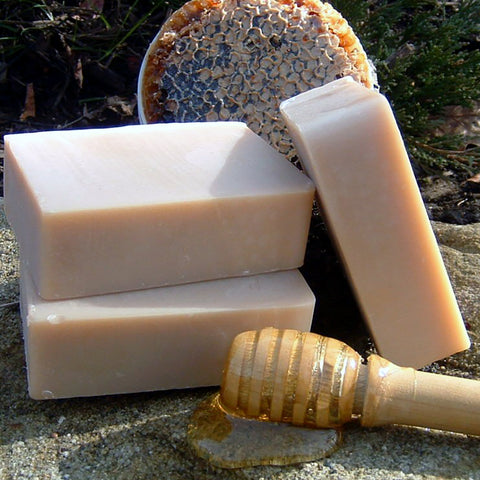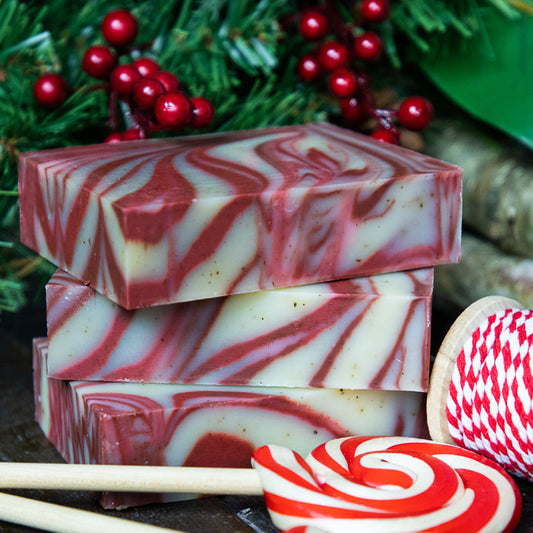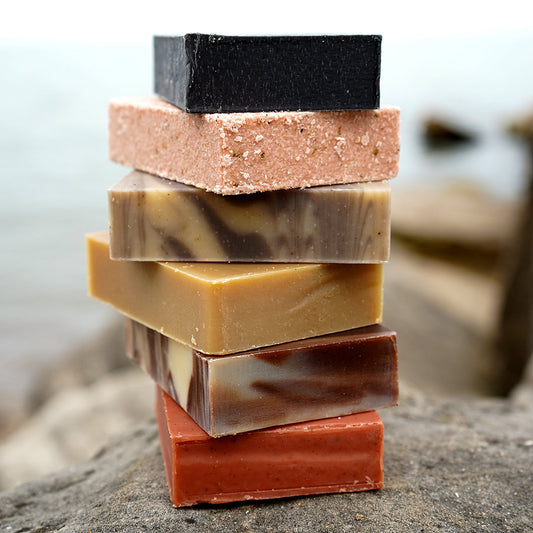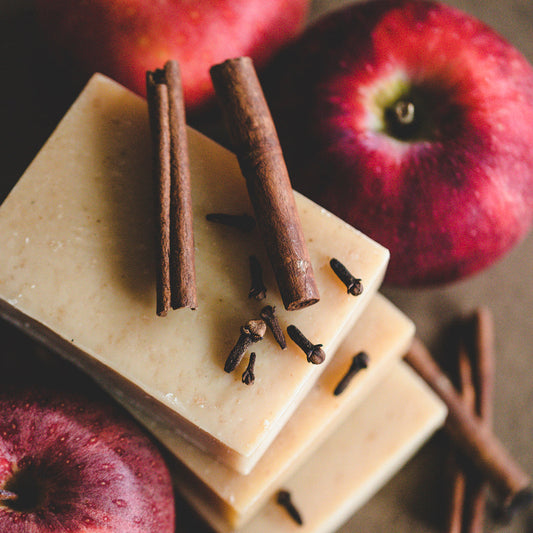Why Does Natural Soap Sweat in Humid Weather?
 A quality bar of handmade soap will often "sweat" in warm humid weather due to the high content of natural glycerin.
A quality bar of handmade soap will often "sweat" in warm humid weather due to the high content of natural glycerin.
Glycerin is a humectant. A humectant is a substance that readily absorbs moisture from its surroundings and thus attracts moisture to your skin and your soap.
Glycerin provides amazing benefits to soap and is a natural byproduct of saponification, the chemical reaction that produces soap.
In commercial soaps, the natural glycerin is removed and sold or used to produce lotions and other skin care products.
Handmade natural soaps, rich in natural glycerin, are the most moisturizing soaps you can find! When you wash with natural soap there is a thin layer of natural glycerin left behind, which will help draw moisture to your skin to keep it hydrated and prevent dryness.
The general health of the skin relates directly to its moisture content. Natural handmade soaps can help the skin maintain a moisture balance while nourishing the skin.
When natural soap sits out in humid conditions, the glycerin in the soap draws moisture out of the air and onto the soap which then appears as little beads of water on your soap bar--like morning dew on blades of grass.
So the sweating is actually moisture from the air that the glycerin attracts, not moisture coming from inside the soap. The more humid the environment and the more humectants in the soap, the more likely you'll experience this phenomenon.
Common Humectants in Soap that Cause Sweating
Many of our soaps and shampoo bars are made with added natural humectants such as sea salt, honey, and castor bean oil.
Sea Salt, Dead Sea Salt & Dead Sea Mud
 The minerals in regular sea salt are natural humectants which help draw moisture to your skin.
The minerals in regular sea salt are natural humectants which help draw moisture to your skin.
The mineral composition of Dead Sea salt attracts even more moisture.
Unlike normal seawater which is about 85% sodium chloride, sodium is not the dominant element in the Dead Sea.
The waters and salt in the Dead Sea contain a varied mix of magnesium, potassium, calcium chloride, and bromides.
The unique waters of the Dead Sea contain 27% of various salts compared to only 3% in normal seawater.
Magnesium salt, for example, has absorption properties that make it a powerful humectant.
Our Dead Sea Black Clay Soap is made with mineral-rich Dead Sea mud bathing in the waters of the Dead Sea.
It helps stimulate blood circulation, balance and tone skin, and deep clean to remove impurities. It is also our soap that tends to sweat the most in humid months.
Our Sea Salt & Seaweed Soap containing 50% natural salts, moisturizing unrefined Shea butter, and nourishing seaweed, gently polishes and moisturizes your skin. Salt rubs have been used for centuries for cleansing and revitalizing dry skin.
Honey & Castor Bean Oil
 Honey and castor bean oil are also natural humectants, attracting and retaining moisture in the skin.
Honey and castor bean oil are also natural humectants, attracting and retaining moisture in the skin.
So soaps and shampoos containing added honey, and shampoo bars with loads of castor oil, may sweat even more.
What To Do When Your Soap Bar Sweats?
There is nothing wrong with your natural soap! It is not melting and it is safe to use. The wetness is just the glycerin and other natural humectants doing their job.
We keep our soaps and shampoos in a temperature and humidity controlled environment during the eight-week curing period. We check every bar before packaging. However, during humid weather conditions, during transportation or in your humid home the soaps may develop some natural sweating.
If you receive your soaps during humid weather conditions, some of the soaps may be damp from the natural "sweat" of the soaps.
Again sweating is completely normal and a sign of quality natural soaps. To prevent the soaps from sweating further, please keep them in a cool dry place away from direct sunshine.


